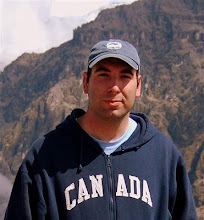G. Steven Burrill's "State of the Biotechnology
Industry" luncheon speech, by Jeff Meredith
I walked in about 20 minutes late for Burrill's talk,
which was packed. Every seat in the Vista Ballroom was
filled, every box lunch had been taken (reporters
really have a one track mind when they attend these
functions ... "Where is the free food?").
The audience had to be 3 times as large as the group
which had attended the ministerial seminar a day
earlier (as part of the international program). And to
give you a sense of how big that is, I'm going to
count the chairs before I leave today. Serious.
I'm now going to present Burrill's talk Ron May-style.
With no sense of order, just a series of notes. Many
of Burrill's observations fall in the realm of
conventional wisdom, but they are worth sharing:
* Burrill pointed out that a lot of discussion
revolves around how expensive drugs are, but drugs
only represent 10% of overall healthcare expenditures.
* Healthcare costs are make or break for certain
companies. He pointed out that healthcare costs per
car are $1,700 more at GM vs. Toyota. "GM is not
competitive because of the cost of healthcare,"
Burrill stated.
* By 2008, it is projected that 80% of drugs will be
paid for by the government.
* Lots of partnering took place in the last year and
that will continue. Partnering transactions added up
to $20 billion last year.
* Generics are here to stay. Most of the revenue in
the existing pharmaceutical industry will disappear to
generic competition in the coming years. Burrill added
that regulatory agencies are pro-generic and no one
should assume this will go away.
* Theranostics are the wave of the future (Howard
Hughes lovers can now repeat, "It's the wave of the
future" 20 times). If you bring a drug to the FDA,
you better have an accompanying diagnostic, notes
Burrill. Burrill says this isn't written into FDA law,
but theranostics "will be built into the approval
mechanism."
* With the advent of personalized medicine, Burrill
doesn't foresee the death of blockbuster drugs. He
expects to still see blockbuster drugs "but not one
size fits all" drugs.
* In the future: the marketplace will be dominated by
a concern with wellness. Some additional focus areas:
obesity, diabetes and metabolic diseases.
* I believe Burrill said biotech crops just passed the
billion acre mark. There is huge growth in agbio and
the market is much more optimistic about a company
like Monsanto than a pharma company like Pfizer or
Merck, he added.
* China: China is experiencing very rapid growth in
the biotech & device market. And the cost pattern is
one-tenth of the US, notes Burrill, reiterating what
we heard during yesterday's international program. The
compelling part is that China is providing a very
skilled workforce at one-tenth the price. Burrill
alluded to postdocs who had been at a Lilly or Pfizer
and now work in Shanghai. Burrill does not view China
antagonistically, urging companies to "become China's
partners ... take advantage of the (difference) in
cost to bring products to market." Burrill predicts
China will become a major innovator. "These are our
partners and friends - they will drive change."
* India: Burrill says there is better intellectual
property protection in India vs. China, and language
is less of a barrier. India already has some powerful
international companies like Dr. Reddy's. With the
emergence of China and India as twin powers, Burrill
says BIO "will look like a very different meeting a
decade from now."
* The IPO market has not been kind to biotechs
recently, which is not really news (is anything I've
written truly news?). Burrill said there have been 60
IPOs the last 3 years and half of them are underwater.
"We get our deals done ... and the values are ugly
compared to where they were in the past," said
Burrill.
[Just a side note, but I'll be writing a bit about an
alternative for biotechs looking to go public without
an IPO hassle: reverse mergers]
* Burrill said scientists will increasingly focus on
the correlation between diet & disease.
* Pharmacovigilance: Companies will not just focus on
getting their products to market, but keeping their
products on the market. Drug safety has renewed
emphasis in the post-Vioxx era.
* Big pharma is "paying bigtime for access to
preclinical programs." Burrill says that pharma's
interest is moving to earlier & earlier stages.
Subscribe to:
Post Comments (Atom)
About Me

- Jeff Meredith
- I am a researcher, reporter and conference producer with experience spanning the aerospace & defense, biopharma, chemical, consumer electronics, energy, homeland security, human resources and IT markets.
In January I rejoined Worldwide Business Research, where I serve as program manager for Consumer Returns, SCMchem and the Digital Travel Summit.
I have an M.S. in science and medical journalism from Boston University (Dec 2008) and did my undergraduate work at Indiana University, majoring in journalism and political science (May 2001). After interning for the Chicago Tribune as a collegian, I landed my first real gig in the Windy City: I was a senior technology writer for I-Street magazine (Sept 2001-Feb 2003). I covered nanotech and biotech startups. From March-November 2003, I worked for a newsletter publisher (Exchange Monitor Publications) in DC, covering congressional hearings, the NRC & DHS.

Sally Lightfood Crab
No comments:
Post a Comment